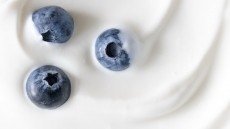New stevia product enters sweetener aisles as awareness increases
leading US retailers, where its manufacturer claims it is placed
side by side with the nation's top sweetener brands, despite its
regulatory status as a dietary supplement.
The move, claims manufacturer Sunwin Stevia International, is a clear indication that the market is ready to embrace a more 'natural' sweetener alternative, as consumers become increasingly concerned about artificial products.
For the time being, the company is focusing on the retail market, but according to Sunwin executive vice president Steven Silbert, the potential of supplying the food and beverage industry has "not been discounted" by the firm.
Stevia, derived from the South American plant stevia rebaudiana, is said to have up to 300 times the sweetness of sugar.
As a sweetener, stevia's taste has a slower onset and longer duration than that of sugar, although some of its extracts may have a bitter or liquorice-like aftertaste at high concentrations.
It is not currently approved in the United States or Europe as a food additive, due to a lack of adequate information on its safety.
However, the ingredient is approved as a food additive in around a dozen other countries, including Japan, Brazil and China.
In the US, stevia is approved for use as a dietary supplement.
It has so far been available in 'green' stores, where a niche sector of health-aware consumers has traditionally purchased it for its sweetener properties.
But Sunwin now says it has got its product, OnlySweet, onto the shelves of Kroger, Schnucks, Brookshire and Albertsons.
"We're being placed on the shelves of thousands of outlets - we're in the sweetener aisle, sitting right next to the top three sweetener products in the world," said Silbert.
"It is not necessarily a negative that the product is listed as a dietary supplement - we're creating a lot of awareness as to what the product is, and it's already a large achievement to get it into stores alongside the sweeteners."
OnlySweet, a stevia blend also containing maltodextrin and a proprietary flavoring agent that masks stevia's bitter aftertaste, only entered the retail market in December last year, but Sunwin has high hopes for its future.
It expects to have its product in 3,000 grocery outlets by July.
The firm, which is a subsidiary of a leading stevia manufacturer Sunwin International Neutraceuticals, said it is well positioned for "accelerated future growth" due to its ability to produce a consistent supply of premium grade stevia.
Silbert said that although the company's main focus remains retail, it is also meeting with certain manufacturers to explore the possibility of supplying the product as an ingredient for the food and beverage industry.
"It's a potentially big avenue for our product, especially if the status of stevia changes," he said.
Indeed, there have been rumors that the US Food and Drug Administration (FDA) could be petitioned to approve stevia as a food additive.
Public awareness of the ingredient shot up earlier this month, after the Wall Street Journal revealed that big players Coca-Cola and Cargill were teaming up to market a stevia sweetener product.
Coca-Cola has filed 24 patent applications for the ingredient in the US.
According to the article, the two firms are gathering data on the ingredient in order to apply for FDA approval.
If this is granted, the market for sweeteners could be set for a major shift.
"We believe this is going to shape the sweetener industry," said Silbert .
"Sales of diet sodas are down because people are concerned about things like aspartame and sucralose.
They're looking for something more natural."
"We're seeing an incredibly dynamic set of circumstances in the market," he told FoodNavigator-USA.com.
"We don't use the word 'sweetener' to market our product due to current FDA regulations.
But if these change based on what Coke and Cargill are doing, then we'll change our position too."
The stevia plant originates from Paraguay where it has been used for centuries to sweeten bitter beverages and to make tea.
The sweetener derived from this is a glycoside formed by three molecules of glucose and one of steviol.
It is also used as a sweetener primarily in South America and Asia.
In Japan, Stevioside is used alone or in combination with other sweeteners in beverages, tabletop sweeteners, chewing gums, pickles, dried seafood, flavorings and confectionery.
According to Mintel's Global New Products Database (GNPD), there have been 180 new food and beverage products containing stevia launched globally in the past year.
These include teas, potato snacks, dressings and beverages, and have been launched in countries including China, Japan and Brazil.















